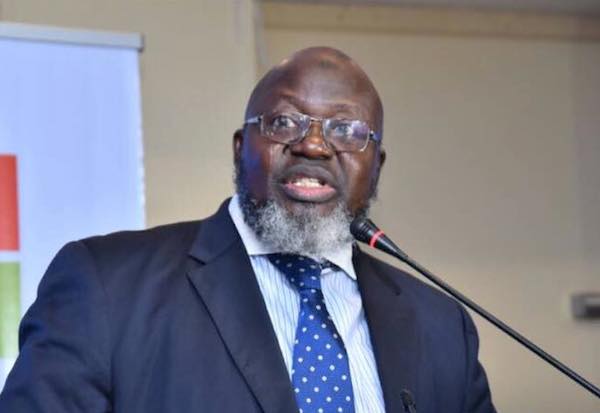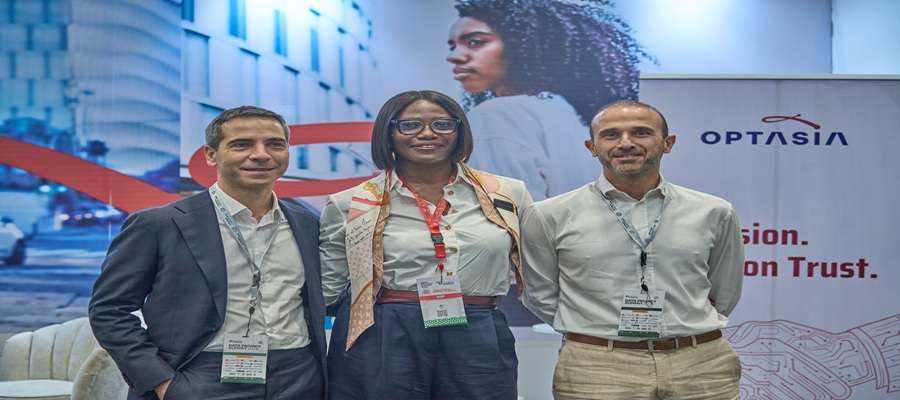Telecom
ICT Sector Accounts for Over $32 billion FDI Over the Last 15 Years- Shittu

Barrister Adebayo Shittu, Minister of Communication, over the weekend disclosed that Nigeria’s revolution in the ICT sector accounts for over $32 billion in foreign direct investment over the last 15 years.
The Minister noted that investments in infrastructure has produced an ICT backbone that powers various critical sectors of the economy such as Banking, E-commerce, Insurance, and Oil and Gas.
Speaking at the one-day conference themed ‘Africa-China Cooperation in ICT and Digital Economy’ in Abuja, organized by the Nigerian Institute of International Affairs in collaboration with the Embassy of China in Nigeria and Huawei Technologies Company (Nigeria) Limited, Shittu advocated the need for all stakeholders to strengthen the technology and innovation ecosystem.
He affirmed that the fortification and supporting the development of innovation hubs in partnership with the private sector will be beneficial to all.
“This conference provides the opportunity to jump-start the critical game-changing steps needed to make Nigeria’s objectives a reality in digital economy, he said
“Beyond this conference, we must work to strengthen relationships and knowledge management platforms towards building the better and more digital future that we seek.”
Lanre Osibona, Special Advisor on ICT to the Vice President, at the conference said that there is an urgent need to overcome challenges facing the nation to leveraging ICT to fuel the fourth industrial revolution that brings about digital economy.
According to him: “Africa must develop its skills. We must know how to scale workforce and move away from business base outsourcing to knowledge base outsourcing.
“Data is the future and new hope. For us as a country we must invest heavily in capturing data.”
Dr. Zhon Pingjian, Ambassador of China to Nigeria, on his part asserted that “China will continue to share its development opportunities with African countries and welcome them on board the train of China’s development.”
Tank Li, Managing Director, Huawei Technologies Nigeria, said a robust ICT infrastructure is the bedrock for digital transformation in Nigeria, and to unleash Digital Economy potentials in the country, issues of availability and affordability need to be addressed.
“In order to foster digital transformation of the economy, policies and programs to increase ICT infrastructure and ensure wide-spread coverage both in urban and rural areas should be prioritized to make voice and data services available.”
Li said “At the same time, strategic measures of infrastructure sharing, investment-friendly regulatory framework and preferential taxation policies are needed to reduce sites acquisition and broadband deployment costs in order to bring down the cost for users to really encourage application of ICT across the industries and the whole society.”
The conference featured discussions on policy issues with a view to propose a domestic approach to not only enhancing the strategic priority of ICT and penetration of fixed broadband, but also improving connectivity through cost-effective network deployment, and easing the development of local content such as e-commerce in accelerating economic growth.
A request by the stakeholders at the conference was made, for a framework and policies from the government that will foster broadband infrastructure development in Nigeria to help stimulate GDP growth.
A necessity to continue to collaborate with private sector and foreign investors that help to drive innovation for scaling ICT in Nigeria was also noted.
Digitization, widespread adoption of digital technologies and applications by Corporates, Government and Consumers, is beneficial for an emerging economy like Nigeria.
Telecom
MTN Guns for $2.76bn IHS Towers Buyout in African Telecom Power Grab

MTN Group, the continent’s telecom behemoth, has plunged into advanced negotiations to acquire the outstanding 75 percent stake in IHS Towers for a staggering $2.76 billion, a seismic move that would hand Africa’s largest mobile operator full reins over one of the world’s premier independent tower companies and redefine infrastructure control across emerging markets.

MTN
The proposed transaction, pegged to IHS’s latest New York Stock Exchange closing price where it trades alongside a Frankfurt listing, builds on MTN’s existing 25 percent holding forged in a landmark 2014 deal that saw the operator offload most tower assets to IHS in exchange for cash and long-term leases.
Sources close to the talks confirm discussions remain fluid with no binding agreement yet inked, and both sides caution that negotiations could shift or stall entirely—MTN has signalled readiness to pivot to alternative value-unlocking strategies for its stake if a full buyout eludes grasp.
Strategically, the power play catapults MTN toward vertical integration in a sector where operators increasingly crave direct grip on passive infrastructure to slash lease bills, streamline upgrades, and rocket-roll 4G/5G amid Africa’s insatiable data deluge.
IHS Towers, MTN’s anchor tenant across swathes of Africa with tens of thousands of masts from Nigeria’s 13,500 tenancies—renewed amid naira-dollar tussles—to South Africa and beyond the Middle East into Latin America, represents a golden infrastructure war chest primed for the operator’s 20-nation blitz.
The saga traces to 2014’s seismic sale that freed MTN capital for spectrum wars while birthing enduring lease pacts, now ripe for reversal as governance dust-ups over shareholder nominations and agendas underscore the buyout’s boardroom chess.
Market tremors rippled through IHS shares post-leak, underscoring the $2.76 billion tag’s gravity as MTN eyes cost efficiencies, network agility, and expansion muscle in oil-volatile economies where tower mastery spells survival.
Should the ink dry, MTN vaults to ownership of a colossus fuelling digital bridges from Lagos megacities to rural frontiers, slashing third-party dependence while supercharging investments in fibre-deep data dreams and 5G horizons.
Analysts buzz that the mega-deal heralds telecom consolidation waves, with operators reclaiming tower turf to fortify against rivals and unlock synergies in a landscape where infrastructure crowns kings.
Neither MTN nor IHS commented officially by press time, but the high-stakes huddle spotlights Africa’s telecom arena hurtling toward an era where owning the poles decides who dominates the digital skies.
Telecom
Google Calls on Africa’s AI Trailblazers for 10th Startup Accelerator Cohort

Google has flung open applications for its landmark 10th cohort of the Startups Accelerator Africa, doubling down on nearly a decade of continent-wide tech propulsion by targeting Series A pioneers wielding AI and machine learning for scientific and societal moonshots.

The 12-week “AI First” hybrid bootcamp, kicking off April 2026, equips Africa-based or Africa-centric innovators with Google’s AI arsenal, expert mentorship, technical firepower, and investor matchmaking to catapult health and deep-tech ventures into orbit—deadline March 18 at g.co/acceleratorafrica.
“Africa’s tech landscape is seeing a vibrant shift toward deep-tech innovation,” proclaimed Folarin Aiyegbusi, Head of Startup Ecosystem, Africa. “For Class 10, we are focusing on the potential of AI to drive health and societal benefits, providing the infrastructure and expertise to turn these startups into the research labs of the continent.”
Since 2018, the accelerator has turbocharged 180+ startups across 17 nations, unlocking $350 million in funding and 3,700 direct jobs, cementing Google’s role as Africa’s AI innovation forge amid a deluge of homegrown problem-solvers.
Equity-free and hybrid-powered, Class 10 promises Google’s product credits, strategic war rooms, and global networks to forge the next wave of African AI trailblazers reshaping everything from disease detection to climate resilience.
Telecom
Optasia Drives Responsible AI Conversation at Nigeria’s Privacy Week 2026

Optasia, a global AI-driven fintech platform, reinforced its commitment to privacy-by-design and responsible innovation as the official partner of Nigeria’s National Privacy Week 2026.

Optasia
Held at the Transcorp Centre in Abuja, the programme brought together regulators, financial institutions and technology leaders around this year’s theme: “Privacy in the Era of Emerging Technologies: Trust, Ethics & Innovation”.
The National Data Privacy Summit, which concluded on Wednesday, 4 February, was convened in line with the Nigeria Data Protection Act (NDPA), which safeguards personal information across the country.
Welcoming Nigeria’s National Privacy Week 2026, Dr Vincent Olatunji, National Commissioner/CEO of the NDPC, underscored the central role of privacy in building trust and unlocking sustainable digital growth.
“Privacy is not an isolated privilege; it is a fundamental right guaranteed by our Constitution. By building trust, we unlock the full potential of our digital economy and protect every Nigerian’s digital identity,” he said.
These priorities closely align with Optasia’s approach, as the company focuses on enabling inclusive digital financial services while embedding privacy, accountability and trust into its technology and partnerships.
As a company operating AI-powered financial services within highly regulated environments globally, Optasia brings practical experience in embedding governance, accountability and data protection into large-scale digital systems.
The company delivers its services exclusively through licensed financial institutions and regulated distribution partners, supporting the responsible expansion of digital financial services while maintaining robust standards of security and privacy.
Optasia’s SOC 2 Type II certification underscores its commitment to maintaining internationally recognised standards of security, confidentiality, and privacy.
Speaking during the event, Uchenna Agbo, Chief Commercial Officer at Optasia, highlighted the heightened responsibility that accompanies rapid digital growth. “As Nigeria’s digital economy expands, the data that powers innovation and inclusion must be protected with the same seriousness as financial capital,” she said.
“For Optasia, compliance, ethical data use and respect for consumer privacy are foundational to building long-term confidence across the digital ecosystem.”
Optasia’s executive leadership participated in high-level panel discussions, with Chief Technology & Innovation Officer Antoine Chatzistamatiou sharing insights on “Building trust by design: Privacy, ethics, and accountability in emerging technologies”, alongside a senior representative from GTBank.
Additionally, Chief Data & Risk Officer Stelios Lelis contributed to a session titled “Innovation without Intrusion: Balancing data-driven growth with privacy as a fundamental right”, alongside senior leadership from Microsoft and Stanbic IBTC.
Optasia’s Nigeria engagement is anchored in four operating priorities: privacy-by-design, responsible use of AI, innovation without intrusive data practices, and stronger collaboration across the licensed ecosystem.
The company’s engagement in Nigeria reflects a long-term commitment to supporting a trusted and inclusive digital economy. As data-driven services continue to expand across sectors, Optasia remains focused on contributing constructively to ecosystem conversations around privacy, accountability, and responsible innovation.

 News2 days ago
News2 days agoNew Study Reveals How Moniepoint Powers Nigeria’s Downstream Oil Sector with Same-Day Settlements and Working Capital Boost

 E-Business2 days ago
E-Business2 days agoOADC Lagos Reinforces Commitment to Local Data Hosting and Digital Transformation @ NDPC’s National Privacy Week Summit

 Telecom2 days ago
Telecom2 days agoMTN Powers 6,000 Young SMEs with Digital Skills in Economic Backbone Boost

 News2 days ago
News2 days agoFG Mandates Shared Funding for N1.98trn Electricity Subsidy

 News2 days ago
News2 days agoSpain Bars Under-16s from Social Media in Digital Safety Crackdown

 Telecom2 days ago
Telecom2 days agoOnafriq, PAPSS Launch Wallet-Based Payments Pilot from Nigeria to Ghana

 E-Financial2 days ago
E-Financial2 days agoFG Signs MoU with ICAN, CIBN, Others to Train 10m Nigerians in Financial Literacy

 General News2 days ago
General News2 days agoCorporate Comms in the Age of Crypto: Why Nigeria’s Digital Finance Future Depends on Trust



























